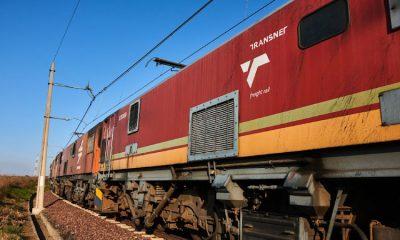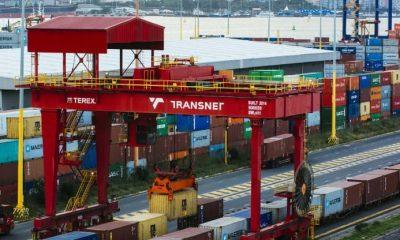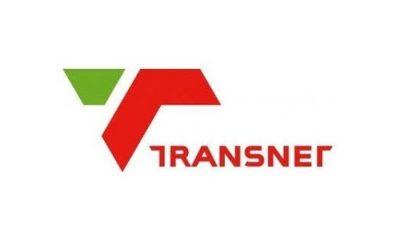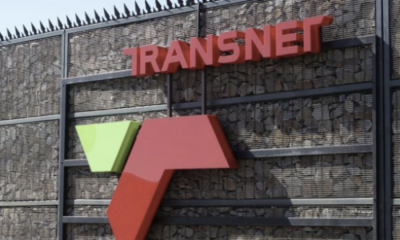Published
4 months agoon
By
zaghrah
South Africa’s logistics sector stands at a critical crossroads in 2025, as it grapples with the pressing need for reforms to ensure sustainable growth and economic stability. Experts emphasize that addressing inefficiencies in rail and port systems is essential to unlocking the country’s potential and maintaining its leadership role in the SADC region.
Dr. Juanita Maree, CEO of the Southern Africa Freight Forwarders Association (SAAFF), highlights that the logistics sector is pivotal to South Africa’s economy, yet it suffers from some of the highest logistics costs globally. These inefficiencies are not only driving up inflation but also stifling trade, with Transnet’s port congestion and limited rail freight capacity costing the economy over R1 billion daily.
The State of South Africa’s Logistics Sector
The challenges faced by state-owned logistics operator Transnet are widely recognized. According to Investec Chief Economist Annabel Bishop, capacity constraints at Transnet are reducing South Africa’s GDP growth by approximately 3% annually. Modest improvements in the sector are expected to contribute marginally to growth in 2025, with GDP projected to increase by 1.8% year-on-year.
Despite these challenges, progress is evident. The establishment of the National Logistics Crisis Committee (NLCC) in 2023 marked a significant step forward. With its mandate renewed for 2025, the NLCC underscores the government’s commitment to finding innovative solutions through public-private collaboration.
Dr. Maree notes that political maturity and policy reforms are opening opportunities for improved operational performance, as evidenced by the strategic freight, rail, and logistics roadmap.
Reforms and Private Sector Participation
One of the most promising developments in South Africa’s logistics sector is the introduction of concessionary opportunities and third-party participation. These initiatives aim to transition away from an inefficient, monopolized service model, enabling critical projects to receive funding and expertise from private sector operators.
Significant reforms include the National Rail Policy and the Economic Regulation of Transport Bill, which aim to separate rail operations from infrastructure. This separation is seen as a necessary step to attract private sector investment in key rail corridors. However, Transnet has temporarily halted further steps to integrate private companies, pending alignment with national policies.
Dr. Maree emphasizes the importance of drafting robust legal frameworks for third-party agreements, as these will determine the success of such initiatives. These agreements are crucial for job creation, economic growth, and addressing the logistics crisis outlined in South Africa’s National Development Plan.
Lessons from the Past: Avoiding Governance Failures
South Africa’s logistics reforms must be informed by lessons from past governance failures, including state capture and corruption. The SAAFF CEO warns against repeating the systemic abuse of well-intended programs, such as Preferential Procurement, which undermined transparency and accountability.
Maree calls for a renewed focus on transparency, expert consultation, and active engagement from both public and private sectors. She stresses that South Africa’s growth trajectory leaves no margin for error, particularly in critical areas like port management and rail freight restoration.
Collaboration for Sustainable Growth
The progress made through the NLCC and other initiatives highlights the potential of public-private collaboration in driving meaningful reform. While challenges remain, the groundwork laid in recent years offers a foundation for sustained improvement.
As South Africa moves forward, the success of logistics reforms will depend on their effective implementation and the integrity of policy measures. With careful management and strategic collaboration, the country can position itself for long-term economic recovery and growth.
The logistics sector is South Africa’s Achilles’ heel—and its greatest opportunity. By prioritizing transparency, fostering public-private partnerships, and addressing systemic inefficiencies, the nation can transform its logistics infrastructure into a catalyst for economic stability. With 2025 poised as a turning point, the time to act is now.
Follow Joburg ETC on Facebook, Twitter , TikTok and Instagram
For more News in Johannesburg, visit joburgetc.com


Thousands of Transnet Workers Threaten Strike as Wage Talks Reach Final Stage


Transnet Seeks Private Partner to Launch South Africa’s First Rolling Stock Leasing Company


Transnet Faces Major Strike as Wage Talks Collapse, Threatening South African Exports


Transnet and Unions Brace for Showdown as Wage Demands Soar Five Times Above Inflation


SIU, Transnet Secure R31 Million in Settlements After Tribunal Ruling


Transnet CEO: Bailout Still an Option as Company Seeks Customer Funding















